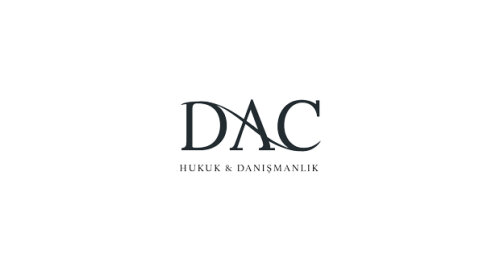Best Collaborative Law Lawyers in Atasehir
Share your needs with us, get contacted by law firms.
Free. Takes 2 min.
Free Guide to Hiring a Family Lawyer
List of the best lawyers in Atasehir, Turkey
About Collaborative Law in Atasehir, Turkey
Collaborative Law is an alternative dispute resolution process aimed at resolving legal disputes amicably and without going to court. In Atasehir, Turkey, this approach allows parties involved in legal conflicts, such as family or business disputes, to work together with their lawyers and sometimes other professionals to reach a mutually acceptable agreement. The collaborative law process is characterized by its cooperative nature, confidentiality, and focus on the needs and interests of all parties involved.
Why You May Need a Lawyer
There are several situations where individuals in Atasehir might seek legal assistance under Collaborative Law. These can include divorce or separation, child custody and support arrangements, resolving business disputes, or any other scenario where a peaceful negotiation is preferable over litigation. A lawyer skilled in Collaborative Law can provide guidance, mediation, and ensure that the parties' interests are fairly represented throughout the process.
Local Laws Overview
In Atasehir, as in the rest of Turkey, Collaborative Law is informed by national laws but is voluntarily entered into by the parties. Key features include confidentiality agreements, a commitment to transparency, and an agreement not to litigate should the collaborative process fail. All participating lawyers are required to withdraw if the process does not conclude successfully and the case goes to court. This creates a strong incentive for parties to work collaboratively towards a resolution.
Frequently Asked Questions
What is the main goal of Collaborative Law?
The primary goal is to resolve disputes amicably without resorting to court, emphasizing communication, respect, and cooperation between all parties.
How does Collaborative Law differ from mediation?
While both aim to resolve disputes outside court, Collaborative Law involves representatives for each party who actively work together, whereas mediation has a neutral third party facilitating discussion.
Is Collaborative Law legally binding?
Any agreement reached through Collaborative Law can be made legally binding if it is formalized in a contract signed by all parties or approved by a court.
Can Collaborative Law be used in divorce proceedings?
Yes, it is particularly well-suited to divorce cases where parties seek a non-confrontational resolution focused on family welfare.
What happens if the collaborative process fails?
If the process fails, the lawyers involved must withdraw, and the parties may pursue other dispute resolution methods, including litigation with new lawyers.
Are collaborative lawyers available in Atasehir?
Yes, Atasehir has a growing number of legal professionals trained in Collaborative Law who can assist individuals looking to resolve disputes amicably.
What types of professionals might be involved in Collaborative Law?
In addition to lawyers, mental health professionals, child specialists, and financial advisers may participate to offer comprehensive support.
Is Collaborative Law suitable for all types of disputes?
While it can be used in many scenarios, it may not be appropriate for cases involving significant power imbalances or unwillingness to negotiate.
How long does the Collaborative Law process typically take?
The timeline can vary widely depending on the complexity of the case and the willingness of parties to cooperate, but it often takes less time than traditional litigation.
What are the costs associated with Collaborative Law?
Costs can vary, but Collaborative Law is generally more cost-effective than litigation due to its non-adversarial nature, which can reduce the duration and intensity of the process.
Additional Resources
For those seeking more information, the Istanbul Bar Association can provide resources and referrals. Additionally, the Turkish Mediation Association may offer support and information about professionals trained in Collaborative Law in Atasehir.
Next Steps
If you need legal assistance in Collaborative Law, begin by consulting with a lawyer who specializes in this area. Consider attending a consultation to discuss your situation, understand your options, and organize the necessary documentation. Make sure to inquire about the lawyer’s experience with Collaborative Law and discuss any potential costs involved. Taking these steps will prepare you for a productive discussion and guide you towards a favorable resolution.
Lawzana helps you find the best lawyers and law firms in Atasehir through a curated and pre-screened list of qualified legal professionals. Our platform offers rankings and detailed profiles of attorneys and law firms, allowing you to compare based on practice areas, including Collaborative Law, experience, and client feedback.
Each profile includes a description of the firm's areas of practice, client reviews, team members and partners, year of establishment, spoken languages, office locations, contact information, social media presence, and any published articles or resources. Most firms on our platform speak English and are experienced in both local and international legal matters.
Get a quote from top-rated law firms in Atasehir, Turkey — quickly, securely, and without unnecessary hassle.
Disclaimer:
The information provided on this page is for general informational purposes only and does not constitute legal advice. While we strive to ensure the accuracy and relevance of the content, legal information may change over time, and interpretations of the law can vary. You should always consult with a qualified legal professional for advice specific to your situation.
We disclaim all liability for actions taken or not taken based on the content of this page. If you believe any information is incorrect or outdated, please contact us, and we will review and update it where appropriate.








